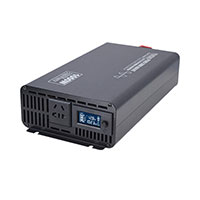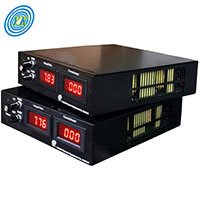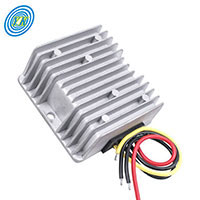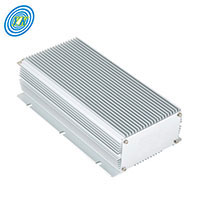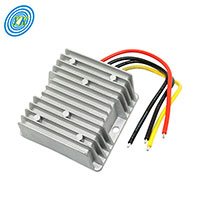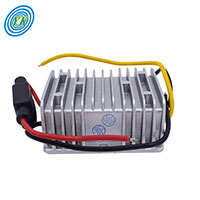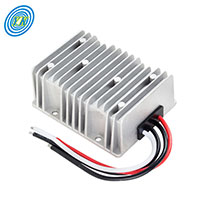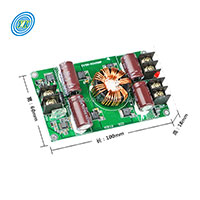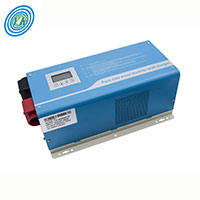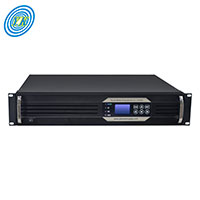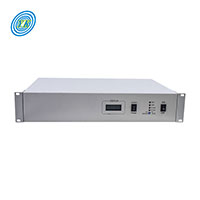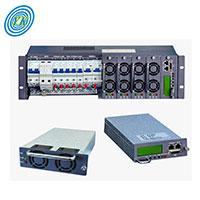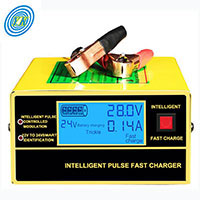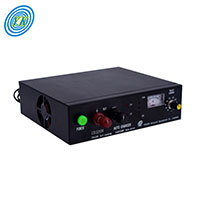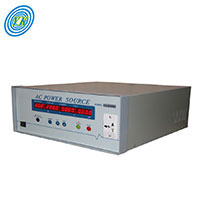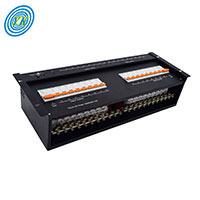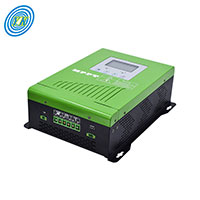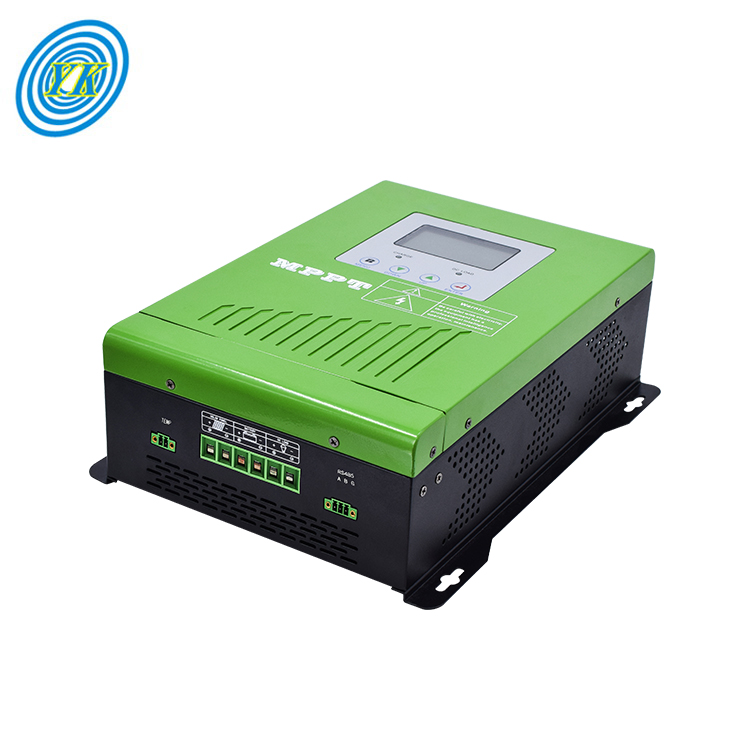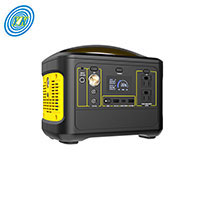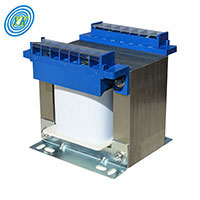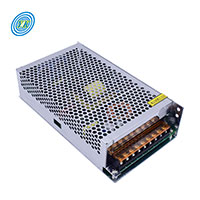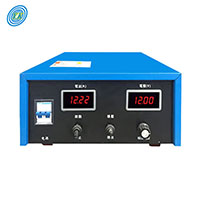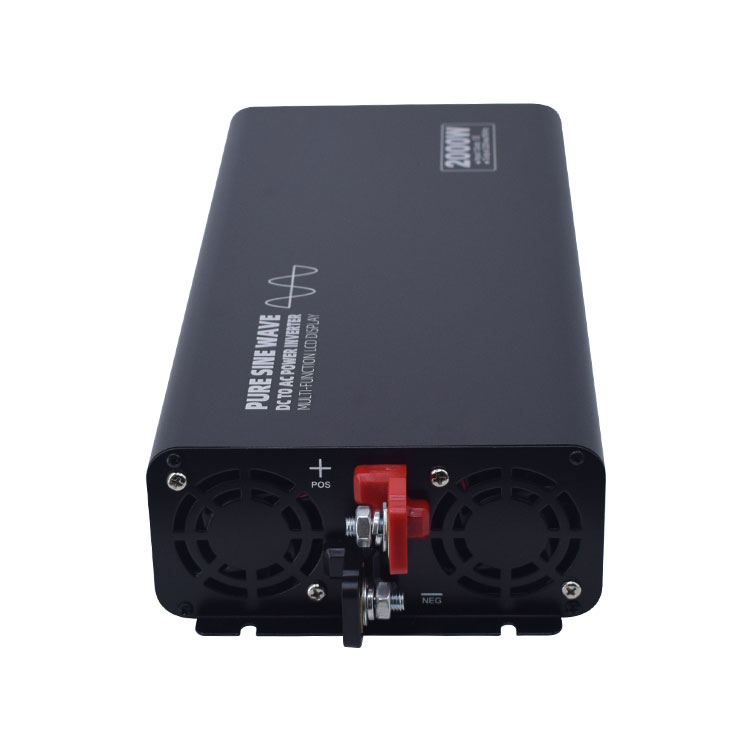
Micro Inverter for Increased Efficiency
Click: 1316 Date: 09/12/2023 09::38::21 AM
Micro Inverter for Increased EfficiencyA microinverter is an inverter that converts DC power to AC power at the individual solar panel level, rather than using a centralized inverter like traditional string inverters. Microinverters have gained popularity in the solar market due to their ability to instantly convert DC power generated by solar panels to AC power. Here are some key advantages and disadvantages of microinverters:Advantages of micro inverters:Self-contained system: Each microinverter paired with a solar panel forms a self-contained solar PV system. This allows for flexibility in system configuration and orientation.Panel-level monitoring: Microinverters isolate the output of each individual solar panel, enabling monitoring at the panel level. This helps identify underperforming panels and allows for immediate troubleshooting and maintenance.Scalability: Microinverters can be implemented on a small scale to match a budget and expanded as needed in the future. Additional solar panels can be easily added by connecting them to their own microinverters.Safety: Microinverters convert DC power into AC power instantly, eliminating the safety risks associated with high-voltage DC electricity. This makes them a safer option for residential installations.Longer warranty: Microinverters typically come with longer warranty periods compared to string inverters. For example, microinverters often have a 25-year warranty, while string inverters typically have a 5-year warranty.Real-time power generation tracking: Microinverters, equipped with Maximum Power Point Tracking (MPPT) controllers, track the real-time solar intensity and temperature of the solar cells. This allows for better optimization and overall performance of the panels.In conclusion, microinverters offer advantages such as panel-level monitoring, scalability, safety, and longer warranties. They are particularly beneficial in situations where shading or dirt on one panel can affect the overall output of the system. However, it's important to consider the higher cost and installation complexity compared to string inverters, especially for larger systems.
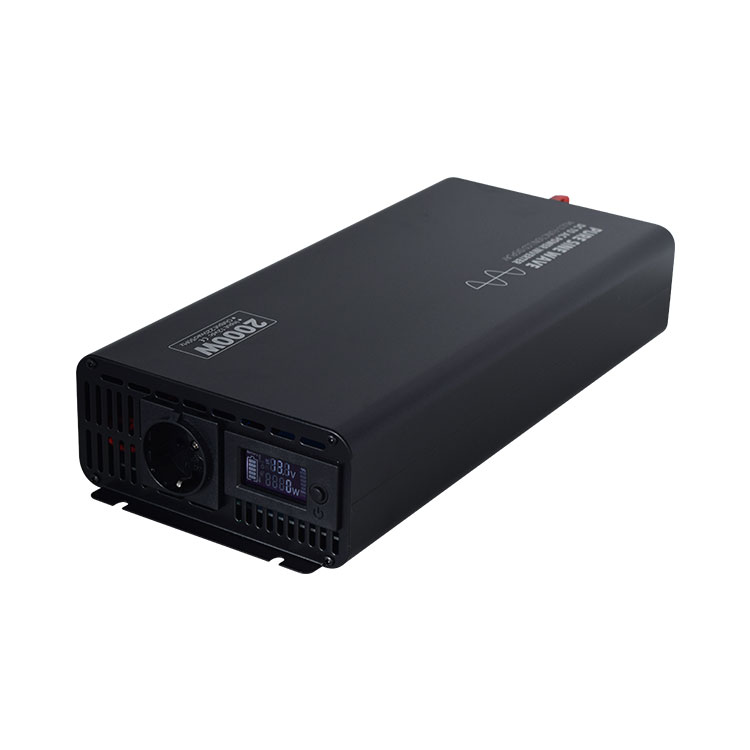
Grid-Tied Inverter for Smart Grids
Click: 1182 Date: 09/12/2023 09::34::34 AM
Grid-Tied Inverter for Smart GridsA grid-tied inverter plays a crucial role in integrating renewable energy sources, such as solar or wind, with the existing power grid. It converts the DC power generated by these sources into AC power that can be fed back into the grid or used locally. This article aims to explore the performance and application of a grid-tied inverter in smart grids, focusing on a specific case study.Literature Review: Several research studies have focused on inverter control techniques for grid-tied renewable and alternative power systems. Khan et al. (2020) conducted an in-depth analysis of grid-connected solar inverters, discussing different configurations, modulation methods, and control strategies. They categorized various multilevel inverter topologies and modulation methods and described different control reference frames for inverters. Other studies have emphasized the grid integration of sustainable energy technologies and the dynamic behavior of generation systems during grid faults and voltage sags.System Overview: The investigated system in this study consists of a centralized grid-tied one-stage three-level diode clamped inverter connected to a hybrid PV-fuel cell (FC) system. The inverter operates under a synchronous PQ open-loop control scheme, aiming to achieve a current harmonic distortion of below 5%. The system includes a 150 kW/1400 V FC, a 150 kW/700 V PV array, a 265 kW/415 V inverter, and a passive LCL filter connecting the grid and the inverter.Performance Evaluation: The performance of the grid-tied inverter system was evaluated using two operating scenarios. In scenario one, the hybrid PV-FC system produces power to feed a neighborhood load while also transferring the surplus to the grid. In scenario two, a neighborhood load of 365 kW is powered by the grid-tied PV-FC inverter, with additional power imported from the grid. The study demonstrated that the proposed system performed well, achieving a current harmonic distortion of about 0.33%.Conclusion: In conclusion, the grid-tied inverter is a key component in smart grids, enabling the integration of renewable energy sources with the existing power grid. This article explored the performance and application of a grid-tied inverter in a specific case study. The study demonstrated the effectiveness of a centralized grid-tied one-stage three-level diode clamped inverter connected to a hybrid PV-FC system, achieving low current harmonic distortion. Further research and development in this field can lead to more efficient and sustainable energy systems for smart grids.
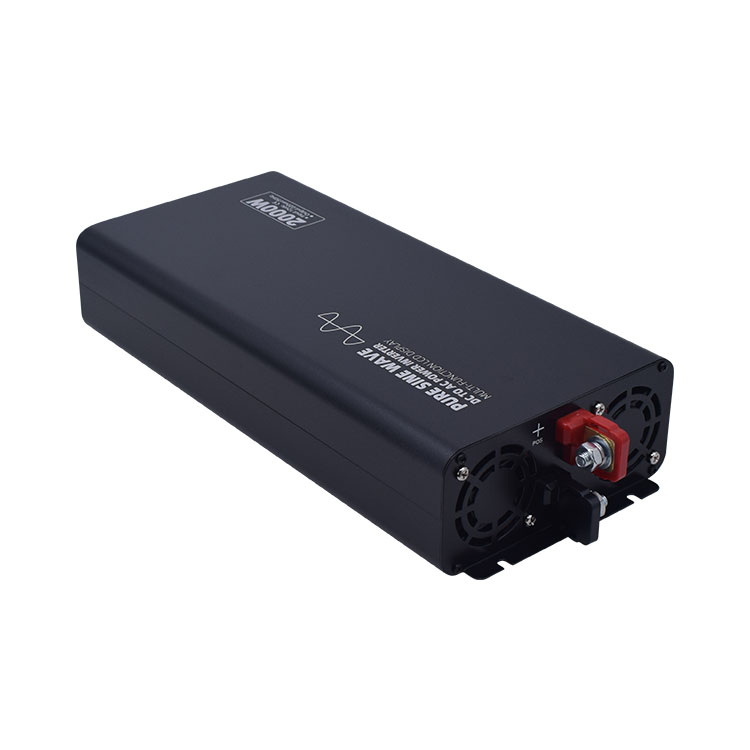
Solar Inverter for Renewable Energy Systems
Click: 1182 Date: 09/12/2023 09::24::03 AM
Solar Inverter for Renewable Energy SystemsSolar inverters play a crucial role in renewable energy systems by converting the direct current (DC) power generated by solar panels into alternating current (AC) power that can be used in homes, businesses, or fed back into the grid. This article will explore the importance of solar inverters in renewable energy systems and their various applications.1. Introduction to Solar Inverters Solar photovoltaic (PV) systems generate electricity from sunlight through the use of solar panels. However, the electricity produced by solar panels is in the form of DC power, which is not directly compatible with most electrical appliances and the power grid. Solar inverters bridge this gap by converting the DC power into AC power, which is the standard form of electricity used in homes and businesses.2. Types of Solar Inverters There are several types of solar inverters available, each with its own characteristics and applications. Some of the common types include:String Inverters: These are the most common type of solar inverters used in residential and small commercial systems. They are connected to a string of solar panels and convert the DC power from the entire string into AC power.Micro Inverters: Unlike string inverters, micro inverters are installed on each individual solar panel. This allows for independent power conversion, resulting in improved system performance and flexibility.Central Inverters: Central inverters are used in large-scale solar power plants. They are designed to handle a high amount of power and are typically connected to multiple strings of solar panels.Battery Inverters: Battery inverters are used in solar energy storage systems, where excess energy generated during the day is stored in batteries for later use. These inverters convert the DC power from the batteries into AC power when needed.3. Grid Connection and Control Solar inverters are also responsible for grid connection and control in renewable energy systems. They ensure that the AC power generated by the solar panels is synchronized with the grid frequency and voltage, allowing for seamless integration with the existing electrical infrastructure. In addition, solar inverters incorporate control mechanisms to ensure the safety and stability of the grid during abnormal conditions, such as grid faults or voltage fluctuations.4. Advancements in Solar Inverter Technology The field of solar inverter technology is constantly evolving, with advancements aimed at improving efficiency, reliability, and functionality. Some of the recent developments include:MPPT (Maximum Power Point Tracking): MPPT algorithms in solar inverters optimize the power output of the solar panels by continuously tracking the maximum power point, which is the operating point that maximizes the power generation.Smart Inverters: Smart inverters incorporate advanced monitoring and communication capabilities, allowing for remote monitoring, troubleshooting, and grid management. They can also provide valuable data on system performance and energy production.Hybrid Solar Inverters: Hybrid solar inverters combine the functionality of a solar inverter with that of a battery inverter, allowing for seamless integration of solar power generation and battery storage in a single device.Conclusion Solar inverters are an essential component of renewable energy systems, enabling the efficient conversion of solar energy into usable electricity. They play a crucial role in grid integration, power control, and system monitoring. With ongoing advancements in technology, solar inverters continue to improve in efficiency, functionality, and reliability, contributing to the widespread adoption of solar PV systems for a sustainable and clean energy future.
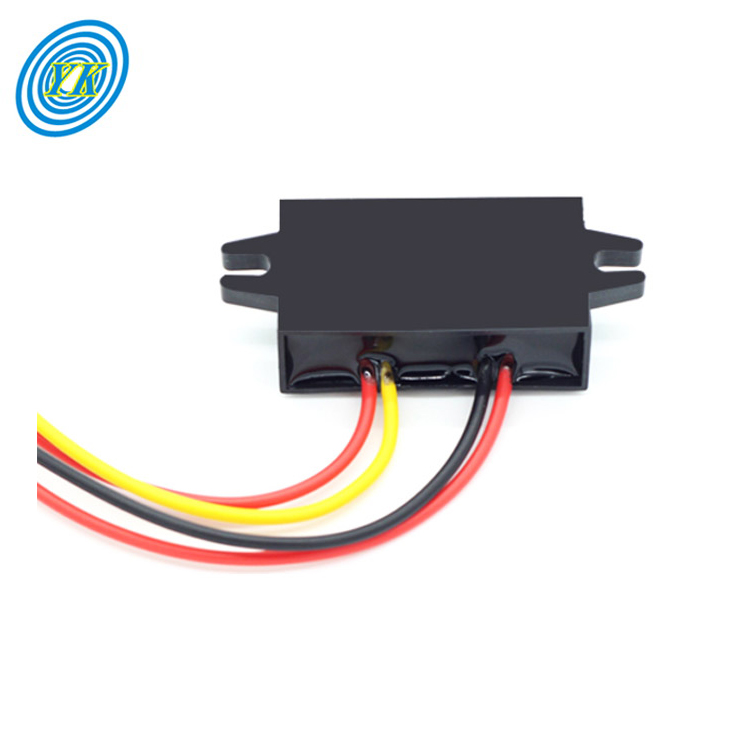
Shaping the Future of Power Conversion: Yucoo’s Technological Advances and their Global Impact
Click: 1215 Date: 09/11/2023 5::26::05 PM
Shaping the Future of Power Conversion: Yucoo's Technological Advances and their Global ImpactThe power conversion industry has witnessed remarkable advancements in recent years, and Yucoo has been at the forefront of driving these technological breakthroughs. With over 20 years of experience, Yucoo has continuously pushed the boundaries of power conversion, shaping the future of this critical field. In this article, we will explore Yucoo's technological advances and their global impact on various sectors, including science and the environment.1. Revolutionizing Efficiency: Yucoo's commitment to efficiency has resulted in groundbreaking innovations in power conversion. By leveraging advanced power conversion technologies and topologies, Yucoo has achieved remarkable efficiency levels in their products. These high-efficiency designs contribute to significant energy savings, reduced heat dissipation, and improved overall performance. The impact of Yucoo's efficiency advancements extends beyond individual applications, benefiting the environment through reduced energy consumption and greenhouse gas emissions.2. Enabling Renewable Energy Integration: The increasing adoption of renewable energy sources poses unique challenges for power conversion. Yucoo has developed cutting-edge solutions that facilitate the integration of renewable energy into the grid. Through advanced power electronics and control algorithms, Yucoo's products enable efficient conversion and management of renewable energy, ensuring seamless integration and optimal utilization. These advancements play a vital role in promoting sustainable energy generation and reducing reliance on fossil fuels.3. Advancements in Digital Control: Digital control technology has revolutionized power conversion systems, and Yucoo has been at the forefront of this transformation. By incorporating digital signal processing (DSP) and intelligent control algorithms, Yucoo's power converters offer enhanced precision, adaptability, and real-time monitoring capabilities. The integration of digital control enables optimal power management, fault detection, and remote monitoring, ensuring efficient and reliable operation of power conversion systems.4. Enhanced Safety and Protection: Yucoo recognizes the importance of safety and protection in power conversion systems. Their products incorporate advanced protection features such as overvoltage protection, overcurrent protection, and fault detection mechanisms. These safety measures safeguard the equipment and prevent potential damage or hazards. Yucoo's commitment to safety ensures reliable operation and minimizes risks in various applications, including critical sectors such as aerospace and defense.5. Driving Innovation in Science and Technology: Yucoo's technological advancements have a significant impact on scientific research and development. Power conversion plays a crucial role in various scientific instruments, laboratory equipment, and experimental setups. Yucoo's reliable and efficient power converters provide stable and precise power supply, enabling accurate measurements, reliable data acquisition, and experimental reproducibility. The advancements in power conversion technology contribute to breakthroughs in fields such as physics, chemistry, and materials science.Yucoo's technological advances in power conversion have reshaped the industry and made a substantial impact globally. Through their commitment to efficiency, renewable energy integration, digital control, safety, and innovation in science and technology, Yucoo has positioned itself as a leader in the power conversion market. As the demand for clean and efficient power continues to grow, Yucoo's advancements will play a pivotal role in shaping the future of power conversion and driving sustainable development in various sectors, including science and the environment.
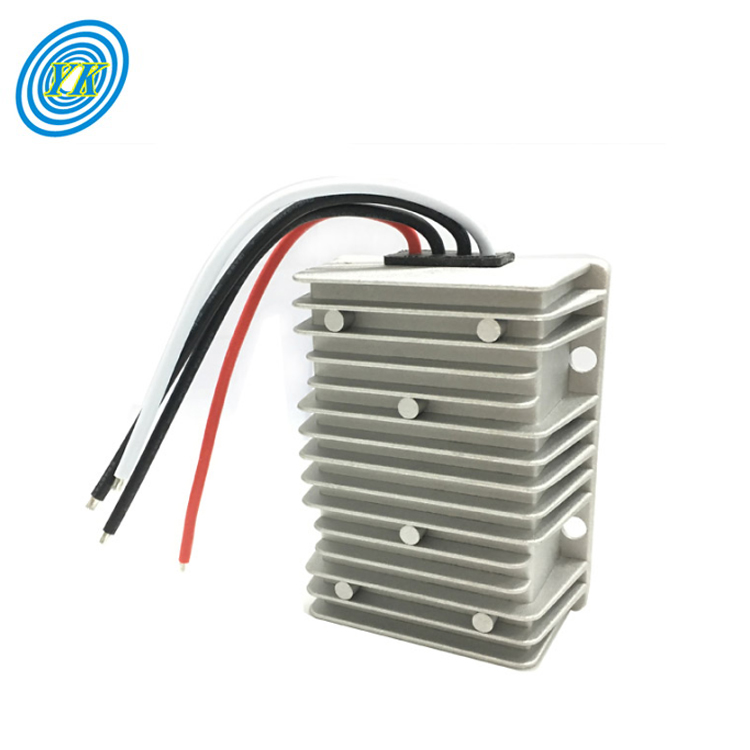
Click: 1303 Date: 09/11/2023 5::11::28 PM
From Linear to Switching: The Evolution of Yucoo's Power Converters and their Impact on Energy EfficiencyOver the past two decades, Yucoo has been at the forefront of power converter technology, revolutionizing the industry with their innovative designs and commitment to energy efficiency. One of the most significant advancements in power conversion technology has been the transition from linear to switching power converters. This evolution has not only improved the performance and reliability of power converters but has also had a profound impact on energy efficiency and environmental sustainability.The Need for Switching Power Converters Linear power converters, although widely used in the early days, suffered from several limitations. They were bulky, inefficient, and generated significant heat, resulting in energy wastage. In contrast, switching power converters, a technology pioneered by Yucoo, offered a more efficient and compact solution. By rapidly switching the power semiconductor devices on and off, switching converters achieved higher efficiency and reduced power losses. This breakthrough paved the way for a new era of power conversion technology.Advantages of Switching Power Converters The transition from linear to switching power converters brought about several advantages that significantly impacted energy efficiency:Higher Efficiency: Switching power converters, such as resonant power converters (RPCs), minimize switching losses and have low switching stresses, resulting in higher overall efficiency. This improved efficiency reduces energy consumption and promotes energy conservation.Improved Power Density: Switching power converters enable higher power density due to their compact size and reduced heat dissipation. This advancement is particularly beneficial in applications with limited space, such as portable devices and electric vehicles, where size and weight reduction are critical factors.Enhanced Reliability: Switching power converters have demonstrated improved reliability compared to their linear counterparts. The reduced heat generation and optimized circuit layouts contribute to increased product lifespan and reduced failure rates.Environmental Sustainability: The energy efficiency achieved by switching power converters directly translates into reduced energy consumption and lower greenhouse gas emissions. By enabling more efficient power conversion, Yucoo's power converters play a vital role in promoting a greener and more sustainable future.Applications in Renewable Energy Sources The impact of Yucoo's switching power converters extends beyond traditional power applications. In the realm of renewable energy, RPCs have proven to be highly effective in grid-connected systems, such as solar, wind, and fuel cell converters. RPCs offer high efficiency, little current ripple, and robustness, making them ideal for power processing from renewable energy sources. Their ability to achieve soft-switching at high operating frequencies contributes to improved energy conversion and reduced environmental impact.Conclusion The evolution from linear to switching power converters represents a significant milestone in power conversion technology. Yucoo's pioneering efforts in developing and refining switching power converters have led to remarkable advancements in energy efficiency, power density, and reliability. These advancements have not only transformed the power supply industry but have also made a substantial impact on environmental sustainability. With their continued commitment to innovation, Yucoo is poised to shape the future of power conversion, driving energy efficiency and contributing to a greener world
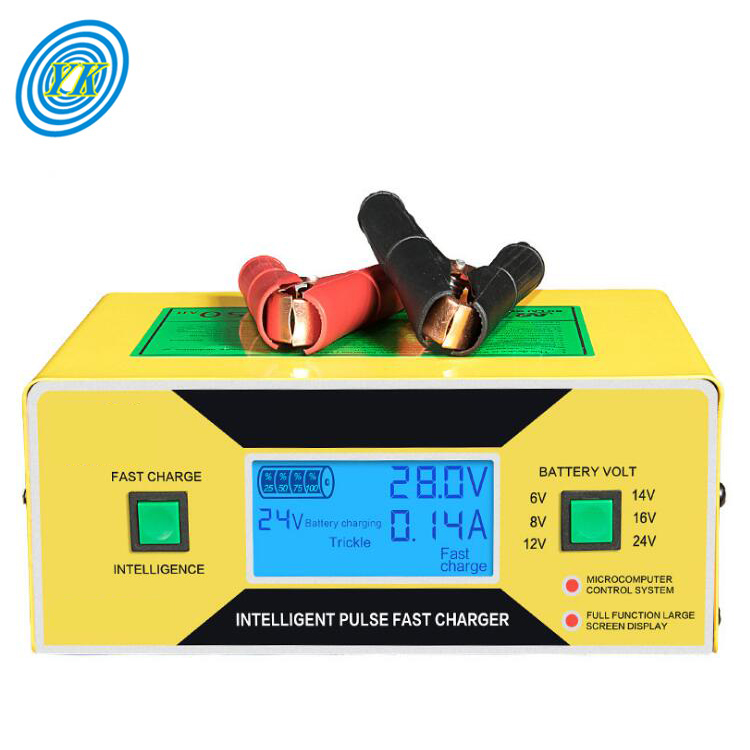
Click: 1254 Date: 09/11/2023 5::06::22 PM
Powering a Sustainable Future: How Yucoo's Power Inverters Are Making a Difference in the EnvironmentIn today's world, the call for sustainable and eco-friendly solutions is louder than ever. This demand has permeated various sectors, including the power supply industry. At the forefront of this green revolution is Yucoo, a power supply manufacturer with a 20-year history of innovation and excellence.Yucoo's power inverters stand as a testament to the company's commitment to sustainability. These devices, which convert DC power into AC power, are critical components in renewable energy systems, such as solar and wind power installations.Redefining Efficiency with Yucoo's Power InvertersOne of the key factors that make Yucoo's power inverters environmentally friendly is their high efficiency. Traditional power inverters can lose a significant amount of energy during the conversion process. In contrast, Yucoo's power inverters incorporate advanced technologies and designs to minimize energy loss, ensuring that more of the generated power is utilized effectively.This high efficiency not only leads to lower energy consumption but also reduces the overall carbon footprint. By maximizing the use of generated power, Yucoo's power inverters contribute to a more sustainable and energy-efficient future.Supporting Renewable Energy SystemsYucoo's power inverters play a crucial role in renewable energy systems. In solar power systems, for example, the generated DC power needs to be converted into AC power for use in homes and businesses. Yucoo's power inverters perform this conversion efficiently, ensuring that the maximum amount of solar power is harnessed.Similarly, in wind power systems, the power produced by wind turbines is often in the form of DC power. Again, Yucoo's power inverters come into play, converting the generated DC power into usable AC power. By facilitating the efficient use of renewable energy, Yucoo's power inverters are making a significant contribution to environmental preservation.Meeting Global Standards for Environmental SafetyYucoo's commitment to environmental safety is reflected in its adherence to global standards. The company ensures that its power inverters comply with international environmental and safety standards. This commitment to quality and safety further solidifies Yucoo's position as a leader in sustainable power supply solutions.ConclusionIn a world increasingly concerned with sustainability and environmental preservation, Yucoo is leading the way with its power inverters. Through high efficiency, support for renewable energy systems, and compliance with global standards, Yucoo's power inverters are indeed powering a sustainable future. As we continue to seek ways to reduce our environmental impact, it's clear that companies like Yucoo will be at the forefront, providing the innovative solutions we need to create a greener world.
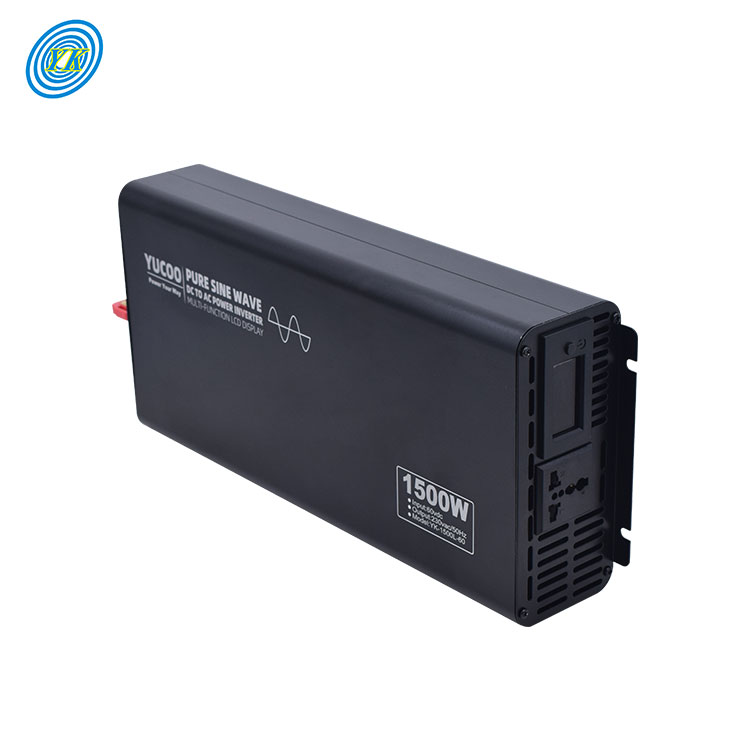
Innovation at Its Best: Yucoo’s Development of High-Efficiency Power Inverters
Click: 1229 Date: 09/11/2023 5::01::13 PM
Innovation at Its Best: Yucoo's Development of High-Efficiency Power InvertersFor over two decades, Yucoo has been at the forefront of power supply innovations, delivering cutting-edge solutions that meet the evolving needs of various industries. A standout in its impressive product portfolio is the high-efficiency power inverter. This article explores the innovative journey of Yucoo's power inverters, highlighting how they've revolutionized power conversion and contributed to energy efficiency.A Commitment to EfficiencyFrom the onset, Yucoo's mission has been to provide customers with satisfactory products and superior services. Central to this commitment is the development of high-efficiency power inverters. These inverters are designed to convert DC power into AC power with minimal power loss, thus maximizing energy conversion and promoting energy efficiency.Technological Strength and Innovative ProcessesYucoo's ability to develop high-efficiency power inverters can be attributed to its strong technological strength and innovative production processes. The company leverages advanced components, state-of-the-art technology, and innovative design principles to create power inverters that deliver optimal performance, reliability, and efficiency.A Wide Range of Power InvertersUnderstanding the diverse needs of different applications, Yucoo offers a wide range of power inverters. These include the LCD Display Power Inverter, High Frequency Telecom Inverter, Portable Inverter, Industry Frequency inverter, and Low frequency power inverter with charger. Each of these inverters is designed with specific applications in mind, ensuring that they meet the unique power conversion needs of various sectors.Contributions to Sustainable EnergyIn line with global sustainability goals, Yucoo's high-efficiency power inverters play a crucial role in promoting energy efficiency and reducing environmental impact. By minimizing power loss and optimizing energy conversion, these inverters contribute to energy savings and pave the way for a more sustainable future.Looking AheadAs the demand for efficient and reliable power conversion solutions continues to grow, Yucoo remains committed to innovation and excellence. The company continues to invest in research and development, striving to further enhance the efficiency and performance of its power inverters.In conclusion, Yucoo's development of high-efficiency power inverters embodies the company's commitment to innovation, efficiency, and customer satisfaction. Through technological strength, innovative processes, and a focus on sustainability, Yucoo continues to set the bar in the power supply industry.
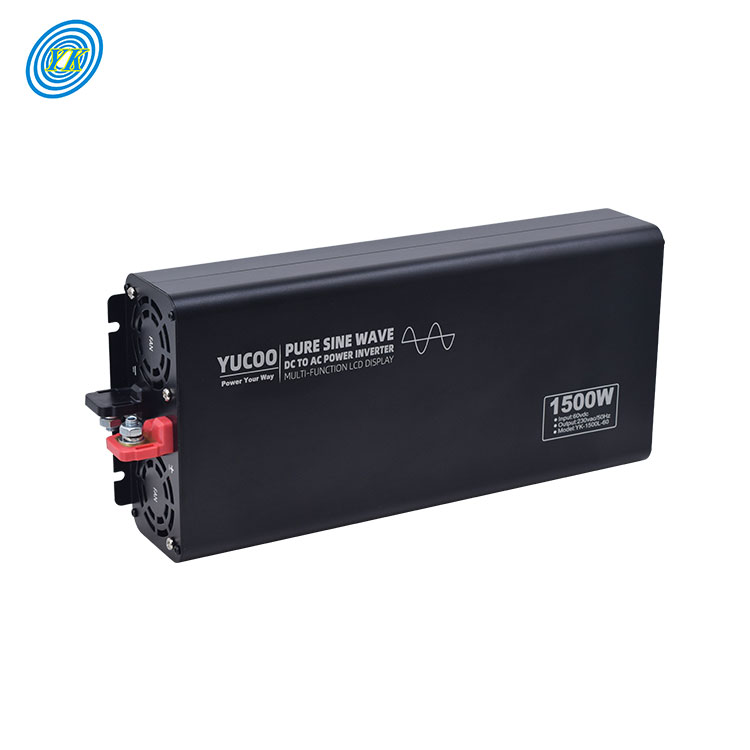
Harnessing Green Energy: Yucoo’s Role in Environmentally Friendly Power Inverters
Click: 1379 Date: 09/11/2023 4::41::00 PM
Harnessing Green Energy: Yucoo's Role in Environmentally Friendly Power InvertersAs the world grapples with the urgency of climate change, the demand for renewable energy is growing steadily. Amid this backdrop, Yucoo, a leading power supply manufacturer, is playing a significant role in the development of environmentally friendly power inverters, contributing to the global shift towards sustainable energy.Powering a Sustainable Future with Renewable EnergyWith the world's population and socio-economic activities increasing, the demand for energy is escalating. This growing energy demand is predominantly being met by fossil fuel combustion and nuclear power plants. However, the challenges associated with these energy sources, such as the depletion of fossil fuel reserves, price volatility, and global climate change, have shifted the focus towards renewable energy sources.Yucoo has responded to this changing landscape by developing power inverters specifically designed for renewable energy systems. These power inverters play a crucial role in converting the direct current (DC) produced by renewable energy sources like solar panels and wind turbines into alternating current (AC) that can be used in homes and businesses. By doing so, Yucoo's power inverters are enabling the harnessing of green energy, contributing to a more sustainable and environmentally friendly future.Energy Efficiency and Greenhouse Gas ReductionOne of the key benefits of Yucoo's power inverters is their high efficiency. The advanced power conversion technologies and topologies incorporated in these inverters minimize power losses and maximize energy conversion, resulting in higher overall efficiency. This efficiency translates into less energy waste and lower greenhouse gas emissions, contributing to the fight against climate change.Social Sustainability and Job CreationBeyond environmental benefits, Yucoo's green power inverters also contribute to social sustainability. The manufacturing, installation, and maintenance of these inverters create job opportunities, contributing to economic growth and social wellbeing. Moreover, as these power inverters enable the use of local renewable energy sources, they can reduce energy dependency and promote energy security.Building the New Global Energy EconomyYucoo's environmentally friendly power inverters are not just products; they are part of a broader movement towards a new global energy economy. An economy that is powered by renewable energy, that values efficiency and sustainability, and that seeks to balance the needs of people, planet, and profit.In conclusion, through its innovative and environmentally friendly power inverters, Yucoo is playing a significant role in harnessing green energy. By doing so, the company is contributing to the global shift towards renewable energy and a more sustainable future.
